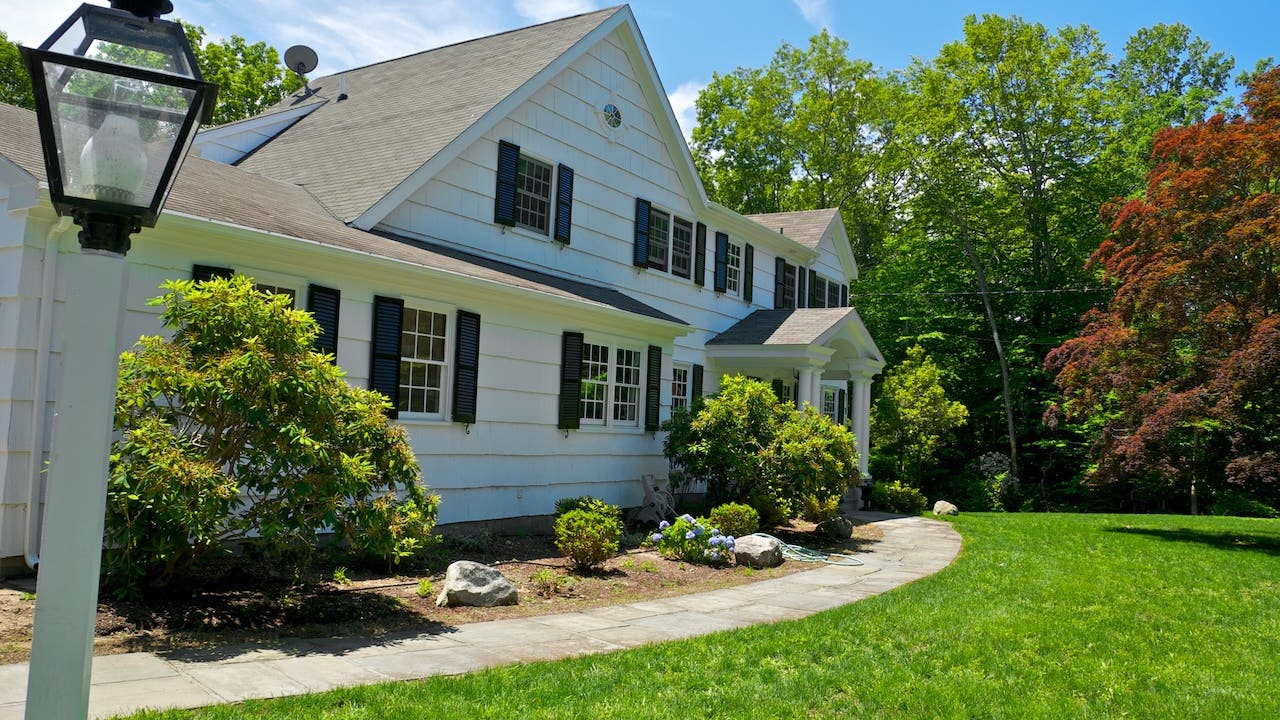Closing costs in Connecticut

While buyers and sellers have different goals when it comes to a real estate deal, the two parties share one commonality: Both need to budget for closing costs. These are the final expenses that must be paid prior to the deal being completed.
Whether you’re trying to buy a house in Connecticut or you’re thinking about selling the one you currently call home, read on to understand how closing costs here work.
How much are closing costs in Connecticut?
According to research from Core Logic’s ClosingCorp, closing costs in Connecticut typically amount to 2.1 percent of the home’s purchase price (not including Realtor commissions). That’s in the middle range among its neighboring states: lower than New York’s 3.1 percent but higher than Massachusetts and Rhode Island’s 1.3 and 1.4 percent, respectively.
The median price of a home in Connecticut was $397,200 in October 2023, according to data from Redfin. So, on a median-priced home, 2.1 percent would be $8,341. However, keep in mind that home prices can fluctuate by quite a lot, especially in the parts of the state that are closest to New York City. For example, in Greenwich the median price in October was a whopping $1.75 million, while in Hartford, it was just $255,500.
Who pays closing costs in Connecticut, buyers or sellers?
Neither party is off the hook when it comes to closing costs. To get a deal done, both buyers and sellers will need to cover a portion of these one-time transaction costs. Here’s a breakdown of who usually pays for what:
Closing costs for buyers
As you figure out how much house you can afford in Connecticut, make sure you set aside enough cash for these common costs:
- Lender fees: Origination, underwriting, application processing, credit report — your lender will likely charge fees for all these things (and more). The amounts vary from lender to lender, which is why it’s essential to shop around to see who can offer you the best deal.
- Appraisal: A lender will also require a professional appraisal to confirm the fair market value of the property, and buyers are responsible for covering that cost.
- Points: Buyers can pay to buy down their mortgage rates. While mortgage points are optional, they can save you money in the long run by reducing your interest costs. The cost is typically 1 percent of the loan amount to reduce the mortgage rate by one-quarter of a percent.
- Home inspection: Home inspections are also technically optional. However, it’s smart to have a professional thoroughly review the home to spot any warning signs before you move in.
- Prepaids: Some lenders may require you to prepay a portion of your property taxes and homeowners insurance upfront in an escrow account.
- Title fees: Buyers in Connecticut typically pay for a title search to identify any potential issues such as past liens against the property, and they’ll also cover the cost of two title insurance policies — one for the lender and another for themselves.
- Attorney fees: If you hire a real estate attorney (which is a wise move), you’ll need to pay for their time at closing as well.
Closing costs for sellers
If you’re selling a house in Connecticut, your closing costs might include:
- Real estate commissions: This will be a seller’s biggest expense on the transaction, as sellers cover the commissions for both agents involved. Real estate commissions usually run between 5 and 6 percent of the home’s purchase price. On a median-priced $397,200 Connecticut home, 5.5 percent is a hefty $21,846.
- Conveyance taxes: Commonly called a transfer tax in other states, Connecticut’s conveyance tax includes fees at the state and local level. For homes less than $800,000, the state tax is 0.75 percent of the purchase price, and the municipal tax ranges from 0.25 percent to 0.50 percent. If you’re selling a luxury property, be ready for a significantly higher bill.
- Property taxes and HOA fees: Depending on when you sell a home, you’ll pay a prorated portion of the property tax bill. And if your home is part of a homeowners association, you’ll need to cover your portion of the month leading up to the closing date.
- Mortgage payoff: If you have an outstanding balance on your mortgage, those funds will automatically be deducted and transferred prior to transferring ownership to the buyer.
- Seller concessions: If the buyer’s inspection uncovers any issues with the property, they may ask you to cover the cost of repairs. You don’t have to agree, but concessions are a very common part of the negotiation process.
-
Attorney fees: If you hire an attorney, you’ll need to pay their final bill at closing.
Lowering your closing costs in Connecticut
Both buyers and sellers can lower their bills for closing costs in Connecticut with smart negotiation strategies. For sellers, the best bet is to negotiate your real estate agent’s commission. If you’re aiming to sell your home for $500,000, a 3 percent commission on that is $15,000. If you can lower that to 2.5 percent, you’ll save $2,500.
For buyers, try requesting seller concessions. According to Redfin, more than one-third of sellers across the country agree to help buyers with their closing costs. And if you’re a first-time homebuyer, make sure you look into one of the state’s many assistance programs, which can help with covering your down payment and closing costs.
Find a local trusted real estate agent
The Connecticut housing market is complicated and competitive, which means it’s tough to go it alone no matter which side of the bargaining table you’re on. Whether you’re trying to buy or sell, find a real estate agent who understands the nuances of your local market and can help you find the best deal.
FAQs
-
Yes, buyers pay some closing costs in Connecticut, as they do in every state. (Sellers pay their share of costs, too.) If you’re purchasing a home, be prepared to pay for fees charged by your lender, along with costs for an appraisal, a home inspection and title insurance. However, sellers pay closing costs, too, including real estate taxes, commission fees and other charges.
-
For sellers, the biggest closing costs to keep in mind are real estate commission fees and Connecticut’s real estate conveyance tax, which costs anywhere from 1 percent to 2.75 percent of the purchase price. For buyers, common closing costs include a variety fees related to the mortgage loan.
Why we ask for feedback Your feedback helps us improve our content and services. It takes less than a minute to complete.
Your responses are anonymous and will only be used for improving our website.






